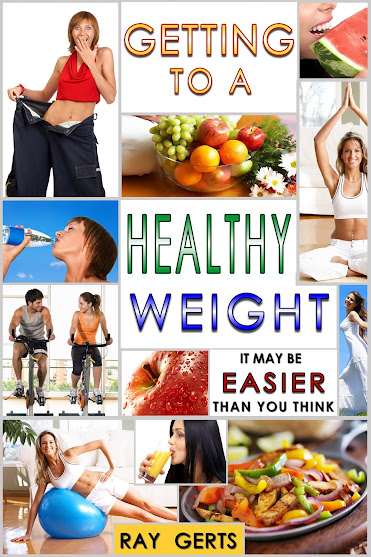Water is an essential nutrient our body depends upon for optimal health and fitness. It keeps us hydrated and assists with other vital processes at every level of human function. According to research, water is shown to be the most important nutrient in sports nutrition.
The human body is made up of over 60% water. Water helps with all body functions operating around the clock. It maintains hydration, digestion, heart and lung function, joint lubrication, protection of our tissues, regulating body temperature, and much more.
Water can be considered our lifeline with endless health benefits. It keeps us feeling and functioning at our best and chronic studies continue to report more positive feedback on why drinking plenty of water is essential to our health
Studies have revealed increasing water intake allows for faster weight loss compared to those not drinking enough water. A glass of water before a meal has been shown to decrease appetite, aid in digestion, and boost metabolism.
Portion control is better adhered to and improved weight loss results experienced. Many people confuse thirst for hunger which has contributed to weight gain. Nutritionists are now recommending drinking a glass of water when you are feeling sluggish or fatigued before reaching for food. This simple test for dehydration vs hunger has shown to help with portion control. Drinking water throughout the day also eliminates the desire to consume sugary sodas/juices loaded with unwanted calories.
A recent study on water-induced thermogenesis has shown drinking cold water increases energy expenditure in the body. Research indicated the increase in energy is created by the body’s effort to warm the water to body temperature. This theory explains the boost to metabolism and increased weight loss.
Holding water or feeling bloated can make us feel uncomfortable. It’s often caused by poor digestion, increased sodium, or a monthly cycle for a woman. Many believe when they’re holding water, drinking water should be avoided. This is far from the truth.
Water is a natural remedy to reduce bloating and drinking plenty throughout the day will begin the flushing process. Retaining water is the body’s natural protective measure to prevent dehydration, so bloat time is no time to hold back drinking fluids. One more thing about water retention. I always get emails about drinking water. It seems that people are afraid of water or what water might do to them. When your body thinks that you might be starving or dehydrated it will hoard and drinking other drinks is not the same thing. Yes, you can flavor water with a slice of fruit, but you have to drink water. Don’t drink anything with calories or those zero-calorie sodas.
Drinking water will reduce the amount of retained salt and lubricate the colon to hasten the elimination of belly-bloating foods.
Constipation is an unpleasant experience and not drinking enough water promotes unhealthy digestion. Time to increase the water and keep things moving at a regular and comfortable pace.
Water binds to soluble fiber in the large intestine and increases the bulk of our stool, reduces transit time, and makes elimination easier. When water is kept from our digestive system, the body pulls water from our stool creating a constipation problem. Drinking plenty of water prevents constipation, promotes healthy digestion, flushes toxins, and eases the burden on our kidneys and liver.
Do you suffer from dry and lifeless skin? The reason may be a lack of water as part of your daily nutrition. Clearing up our skin starts from within and is benefited when we drink plenty of water.
We lose body water through sweat and even more during a workout and hot environmental conditions. Drinking water ensures rehydration and replenishment of the natural lubrication of our skin. Our skin loves moisture and drinking plenty of water helps restore suppleness and eliminates dryness.
Drinking enough water is always a question and a good indicator is checking the color of your pee. Healthy urine is fairly clear and shows we’re drinking plenty of water to keep our skin moist and lubricated. Using lotion is fine but drinking water remains the primary way to maintain well-hydrated skin.
Water requirements are met through how much we drink and a small percentage through food intake. Each person will differ in water requirement based on age, environment, and activity levels.
We lose water everyday body functions of sweating, breathing, and going to the bathroom. If we’re physically active, in hot climates, running a fever, or having flu symptoms like diarrhea or vomiting we will lose even more water.
All water loss requires replacement to keep our bodies well hydrated and healthy. The Food and Nutrition Board released new dietary reference intakes for water. “It is recommended that women consume 2.7 liters (91 oz.) daily and men consume 3.7 liters (125 oz.) through various beverages (80%) or in food (20%).” A great indicator of healthy water intake is fairly clear urine and drinking more until that mark is reached.
Look for my podcasts on anchor.fm, or the podcast app on your cell phone.
Search “howbaddoyouwanttoloseweight”.
If you really want to lose your body fat then look for my e-books at the websites listed below. You’ll get information on Healthy eating, exercise, and diet. Instead of spending hours on the internet reading dozens of posts, you can save time by picking up one of my e-books.
There are two e-books. “How Bad Do You Want To Lose Weight?” is available at all the online bookstores selling for $3.99. Go to any of the websites below and search the title to find my e-book. This book gives you all you need to lose weight without spending money on gym memberships, diet plans, or meal plans. Look for my book. at Amazon.com, B&N.com, iBooks, Kobo.com, Scribd.com, or Gardner Books in the U.K.
My new e-book is available on Smashwords.com, just type “getting to a Healthy Weight” in the search box at the top of the home page.
/about/overweight-woman-122375286-57f44e303df78c690f039665.jpg)







